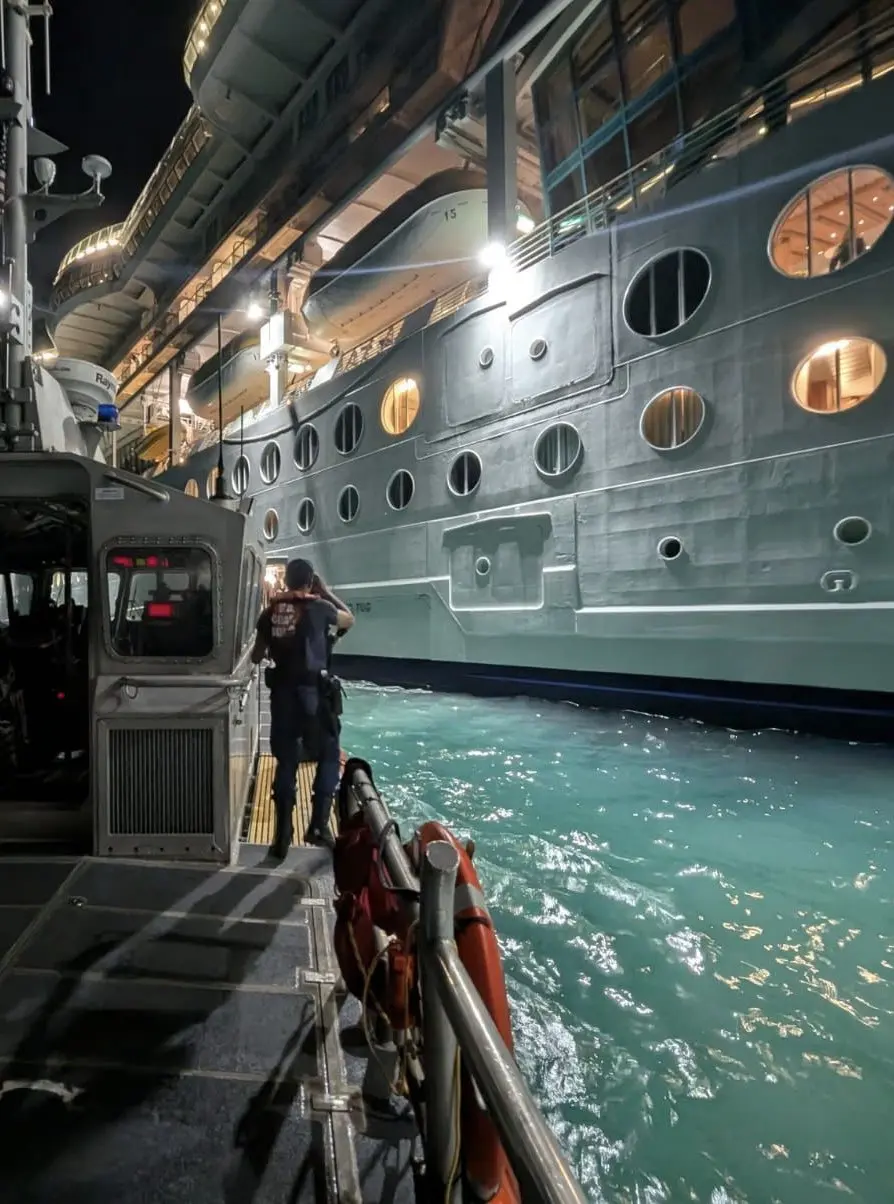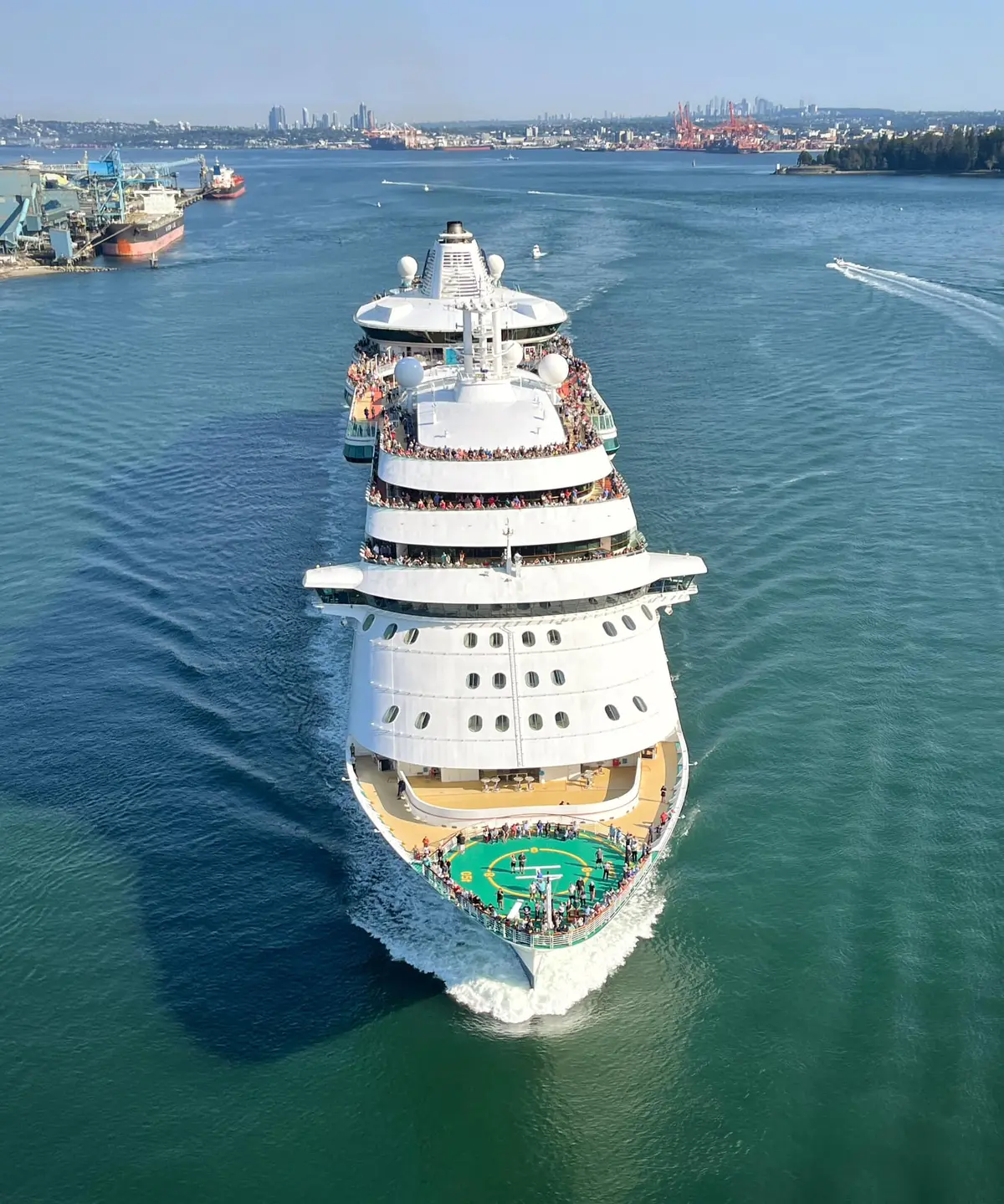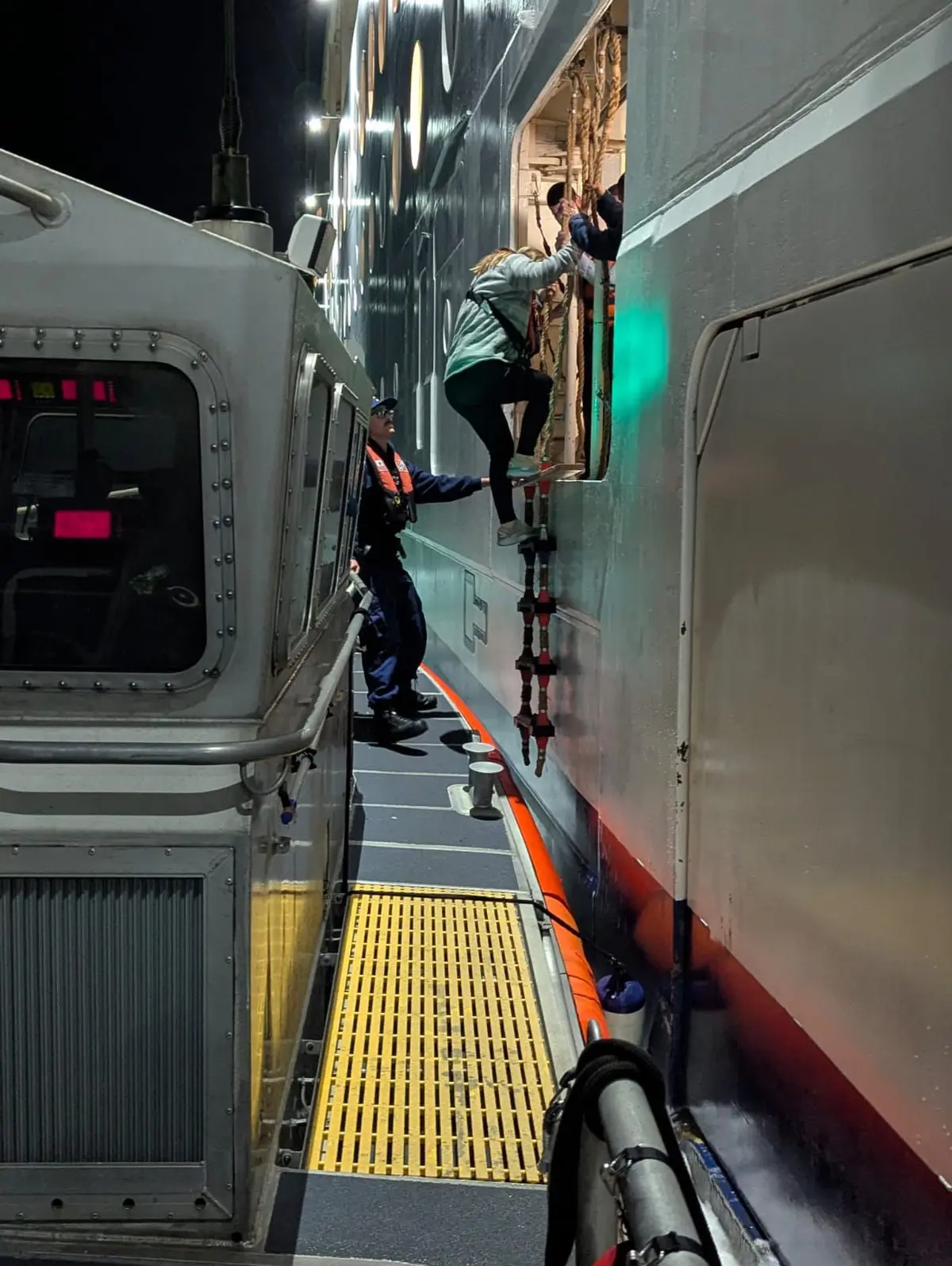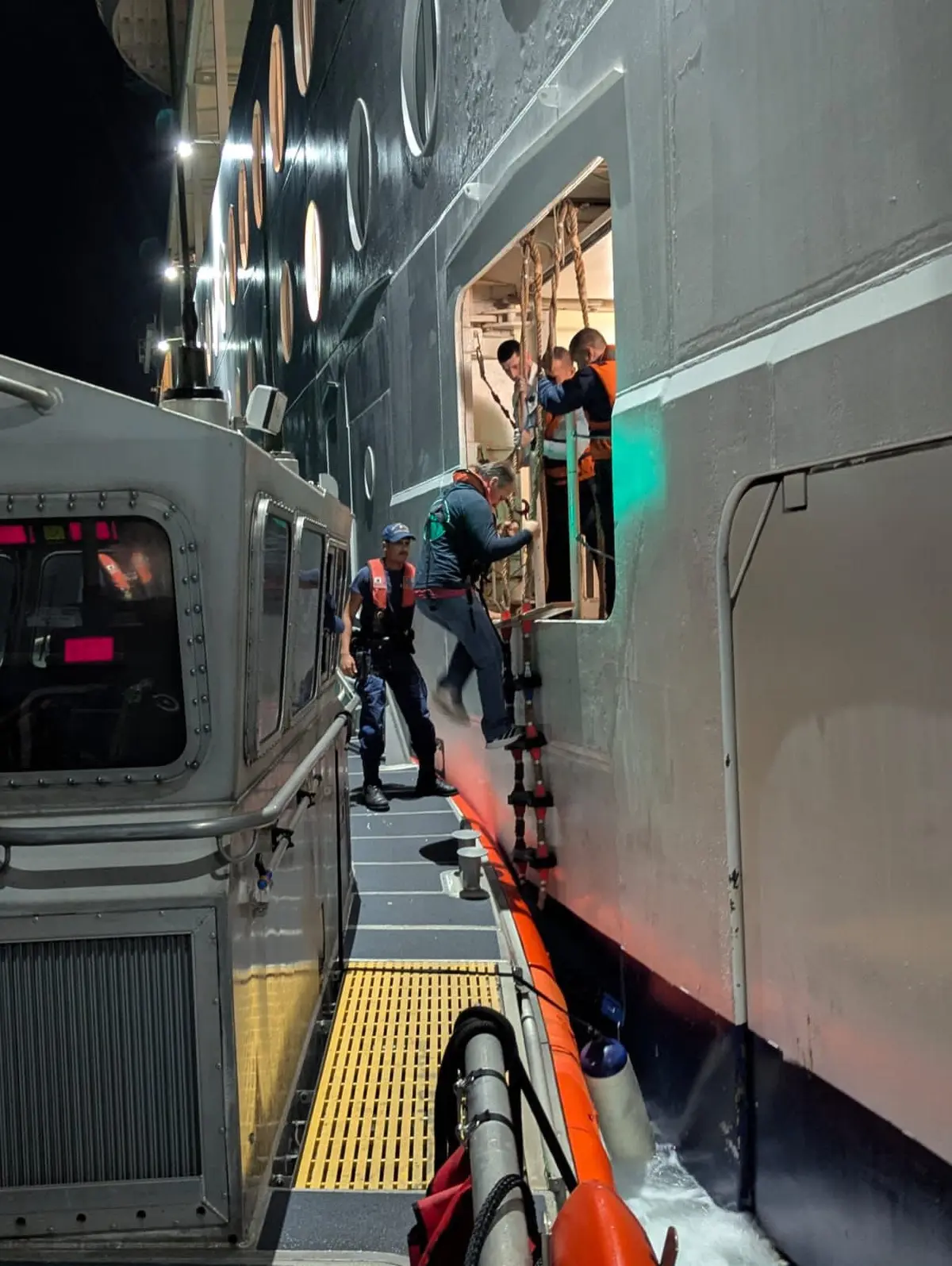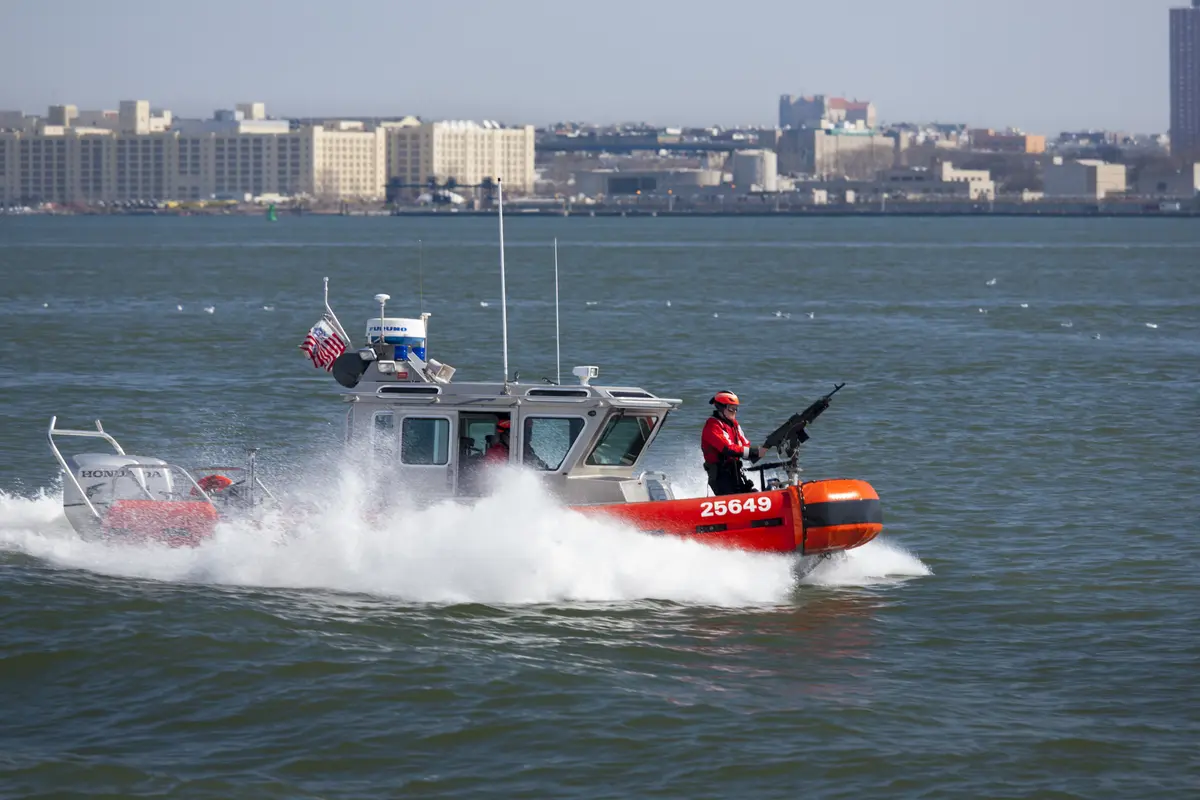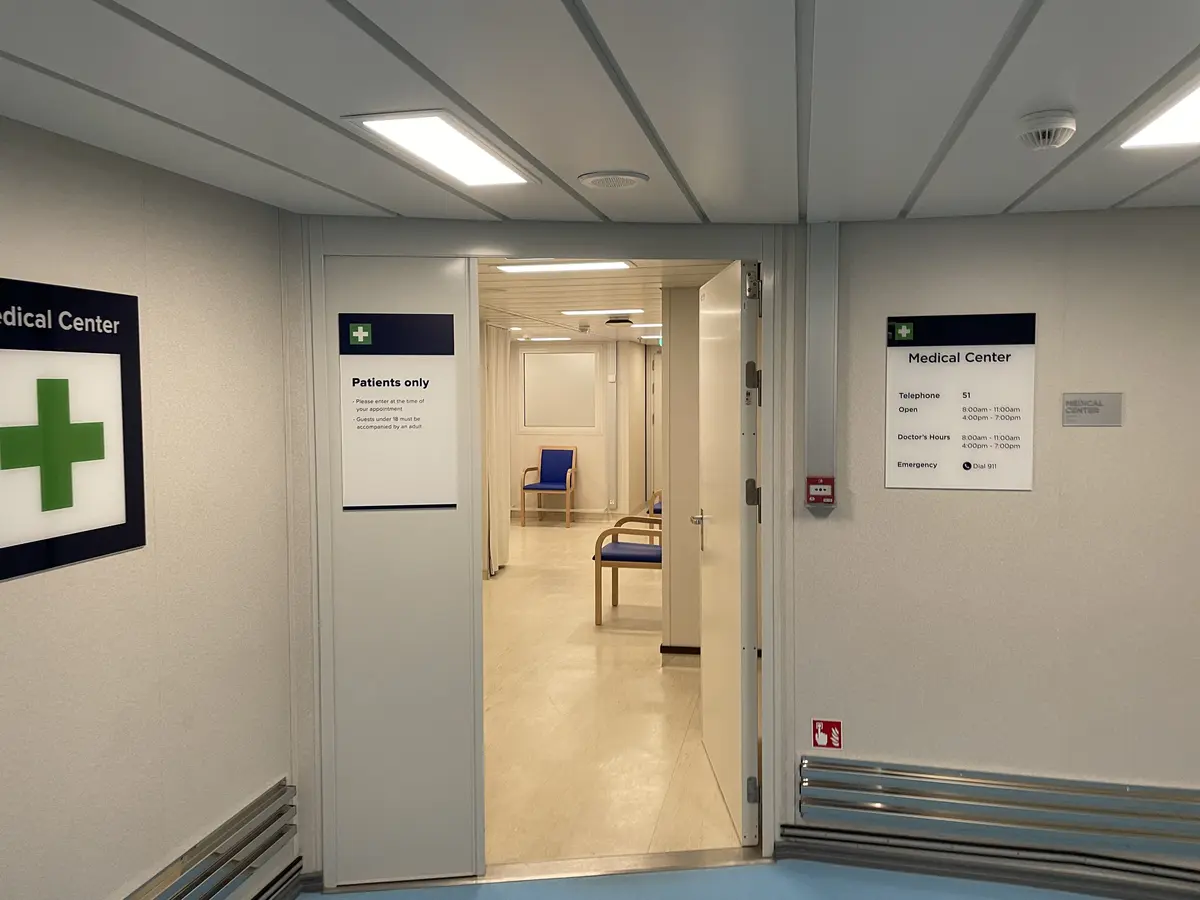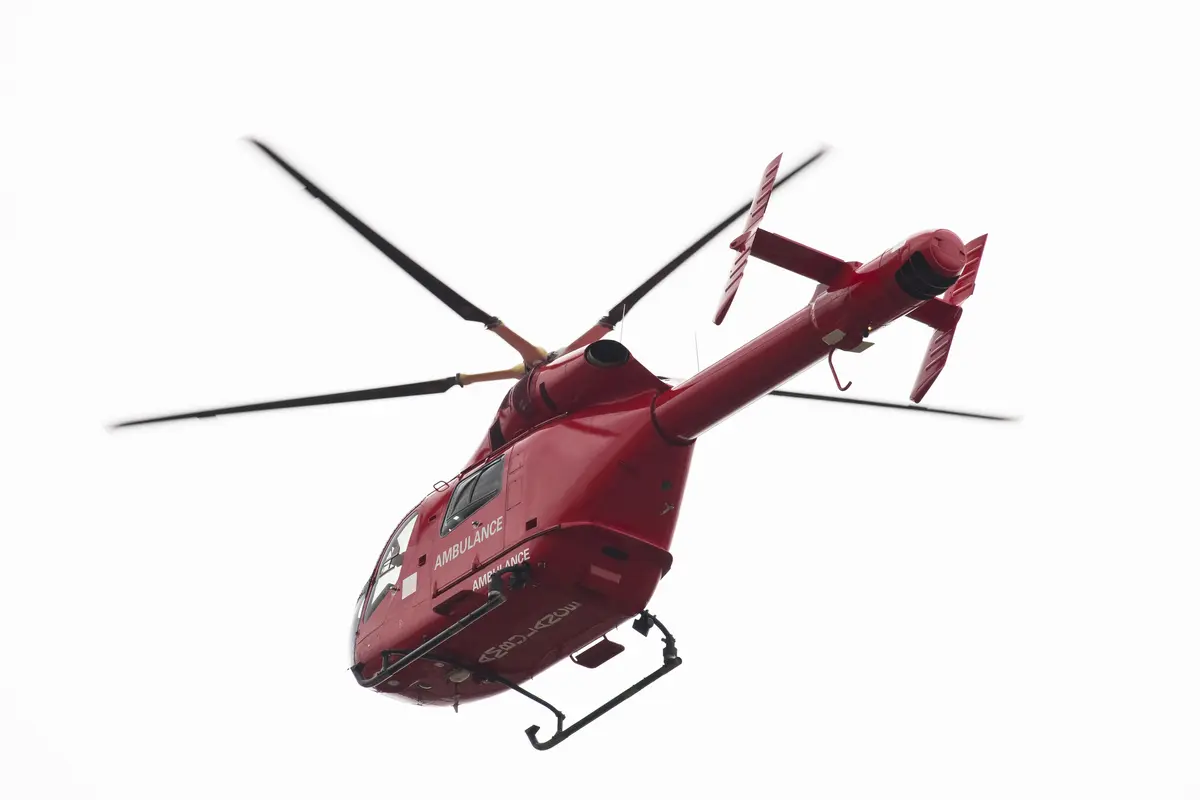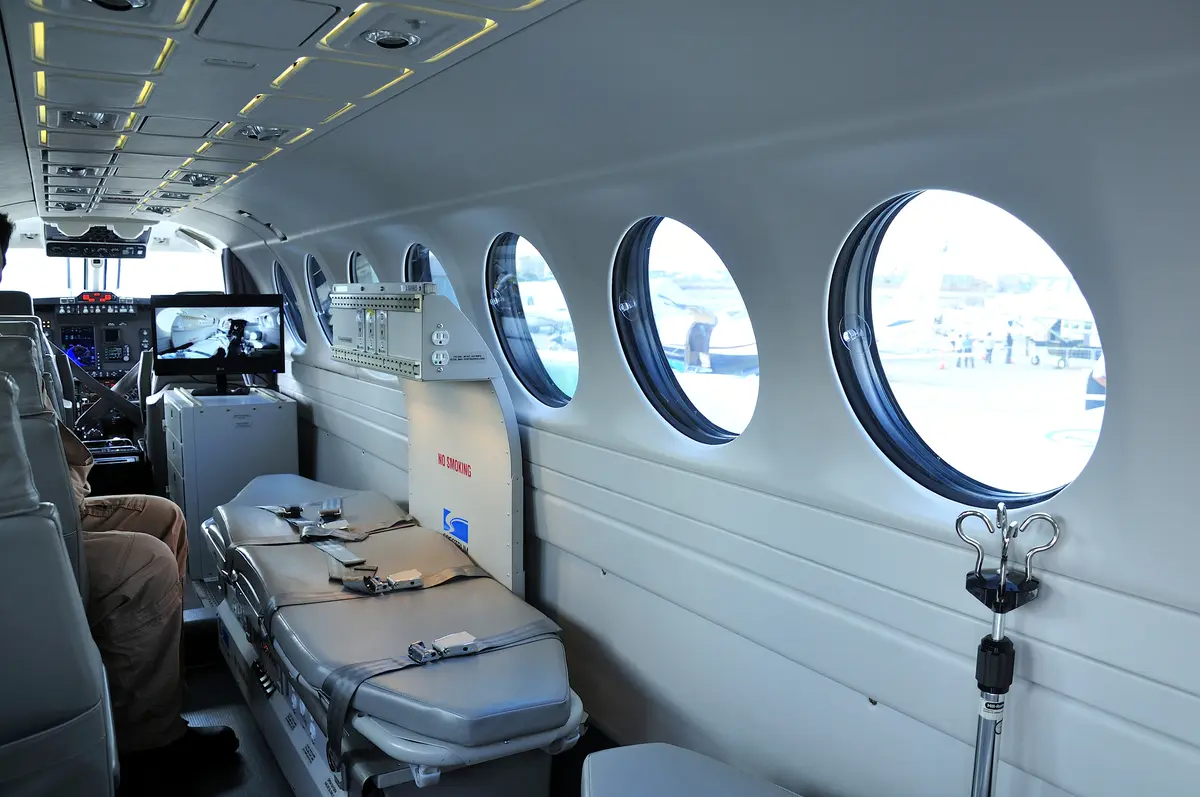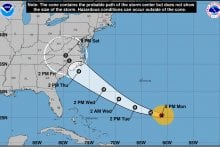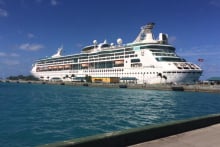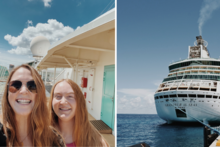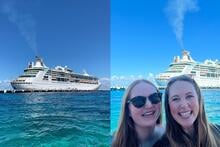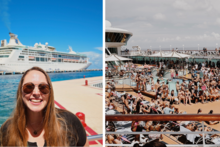Two Royal Caribbean ships had to have a passenger evacuated off the cruise ship for medical reasons.

The US Coast Guard rescued a man experiencing severe abdominal pain from Grandeur of the Seas shortly after the ship began a cruise.
Grandeur of the Seas is Royal Caribbean's oldest cruise ship, and she had departed from Fort Lauderdale to make her way to the Southern Caribbean for a 9-night voyage.
The US Coast Guard Southeast was called in when the 2,440 passenger cruise ship was 40 miles off shore, southeast of Miami.
#Breaking A @USCG Air Station #Miami rescue crew medevaced a 56-year-old male from a cruise ship, 40 miles southeast of Miami, Sat.
The aircrew transported the individual, who suffered severe abdominal pain to Jackson Memorial Hospital in stable condition. #SAR pic.twitter.com/vhey8HT4hm#Breaking A @USCG Air Station #Miami rescue crew medevaced a 56-year-old male from a cruise ship, 40 miles southeast of Miami, Sat.
The aircrew transported the individual, who suffered severe abdominal pain to Jackson Memorial Hospital in stable condition. #SAR pic.twitter.com/vhey8HT4hm— USCGSoutheast (@USCGSoutheast) December 14, 2024
A post on X/Twitter showed the rescue efforts after the man was airlifted off the ship.
While medical emergencies may be the last thing cruise-goers want to consider when planning their vacations, the video offers a glimpse into the emergency rescue procedures followed during life-or-death emergencies at sea.
According to the Coast Guard, the man was taken to Jackson Memorial Hospital in Miami in stable condition.
Grandeur of the Seas then resumed her sailing, heading to Labadee, Haiti.
Another rescue on Radiance of the Seas
On the same day, another Coast Guard unit was requested for assistance on Royal Caribbean's Radiance of the Seas.
Radiance was sailing from Tampa, Florida and had also just begun a cruise. Radiance is sailing a 7-night Western Caribbean cruise.
The Coast Guard was alerted when the 2,466 passenger ship was 13 miles west of Anna Maria Island.
The reported issue involved taking a female passenger off the ship, accompanied by her mother & father.
This time, a Coast Guard vessel was dispatched instead of a helicopter.
In a tweet, the Coast Guard said, "The female required higher level care and was transferred to awaiting EMS at Station Cortez."
Following the evacuation, the Royal Caribbean ship resumed her sailing towards the Western Caribbean.
Medical evacuations happen more often than you think
Posts from the US Coast Guard highlight the important work they do in cases of emergencies, and it's a good reminder that health issues can arise anywhere.
Passengers could be taken from a ship for a host of medical issues, such as symptoms of strokes, heart attacks, kidney failure, progressive acute illness, respiratory failure, pneumonia, and septic shock.
Cruise ships are equipped with basic facilities to triage any health issues they encounter until such a time the passenger can be taken off the ship to a full medical facility.
Cruise ship medical centers are probably bigger than you might think, but their function is to offer necessary treatments and if a patient has a more serious condition, get them off the ship so they can receive the full range of treatments they require.
All cruise ships have standards set by the American College of Emergency Physicians in how patients are treated onboard, as well as experience levels, certifications, and skills of the doctors and clinical staff onboard.
Medical staff varies by ship size, but Royal Caribbean ships typically have at least 2 doctors and 4 nurses onboard.
Medical evacuations are expensive
This pair of medevacs are a good reminder how important travel insurance is for anyone going on a cruise.
Most travel insurance plans include some level of Medical Evacuation & Repatriation coverage.
While the Coast Guard conducted these rescues, sometimes it can be done using an air ambulance, a commercial airline, or other ground transportation vehicles fitted with medical equipment.
According to the CDC, a medical air evacuation can cost between $25,000 to more than $250,000.
Remember, most primary health insurance plans, such as Medicare or an employer sponsored plan, do not provide coverage outside the United States.
Squaremouth, a travel insurance comparison site, recommends someone going on a cruise ship have a travel insurance plan that has at least $250,000 in emergency Medical Evacuation coverage.



